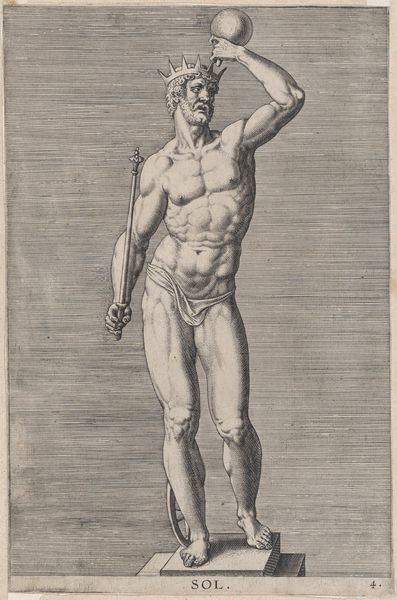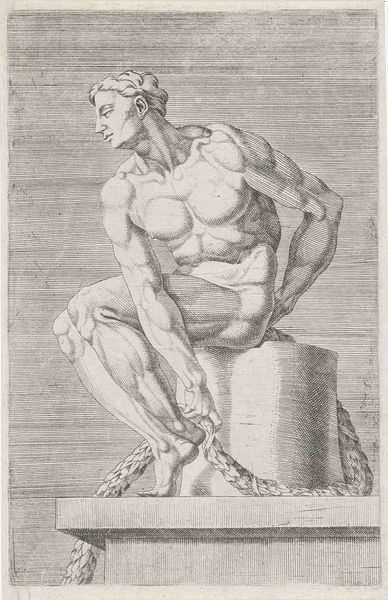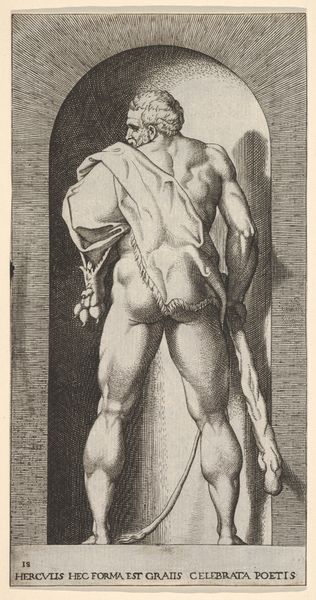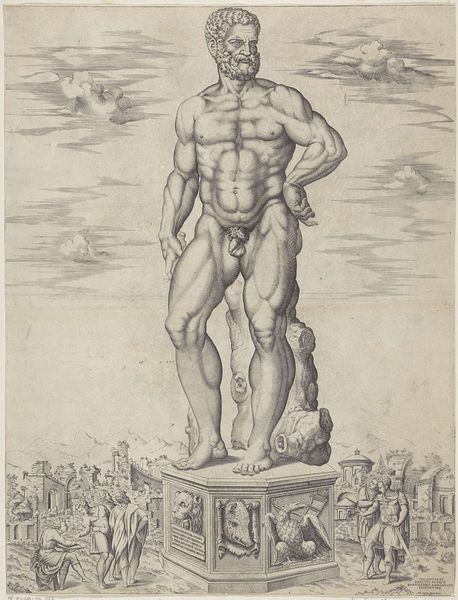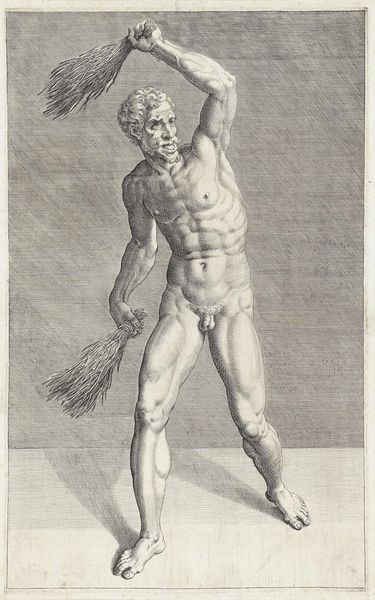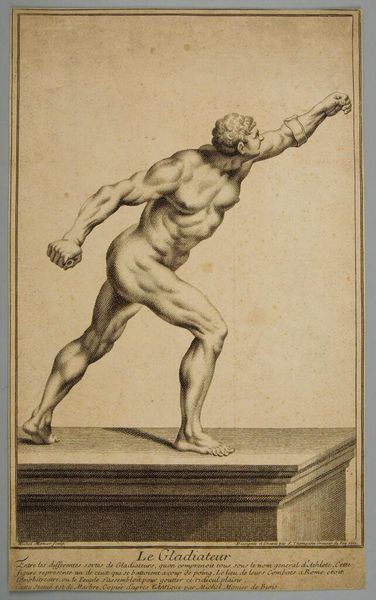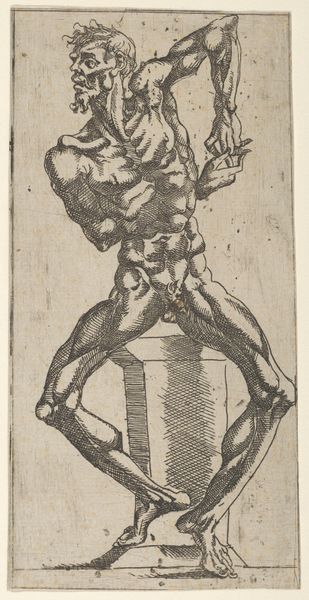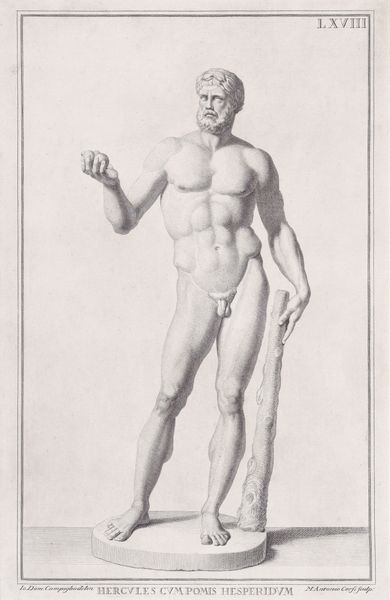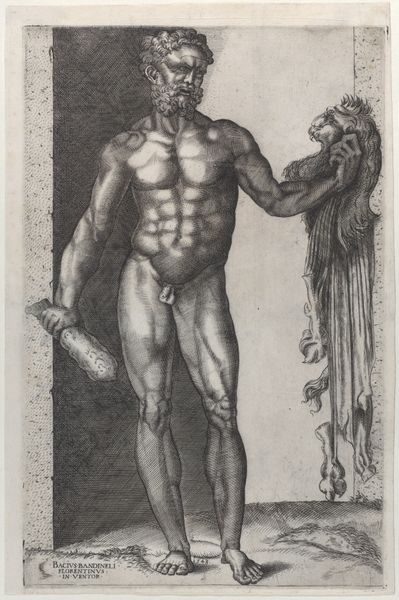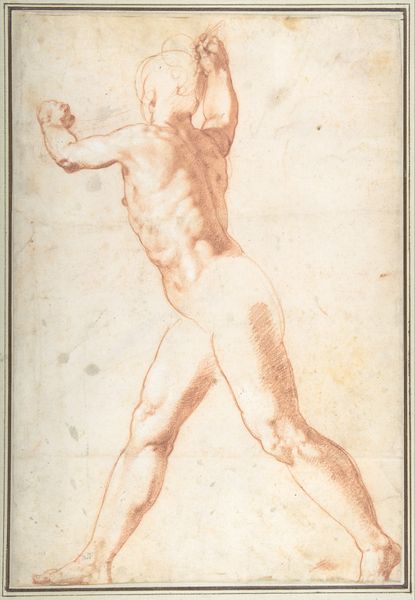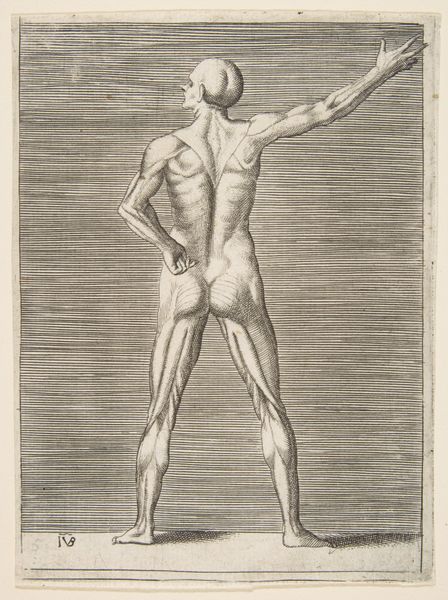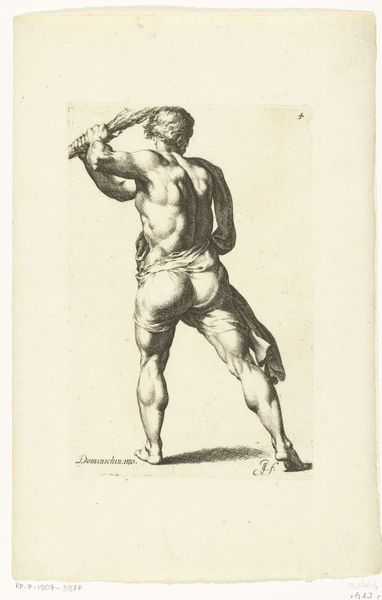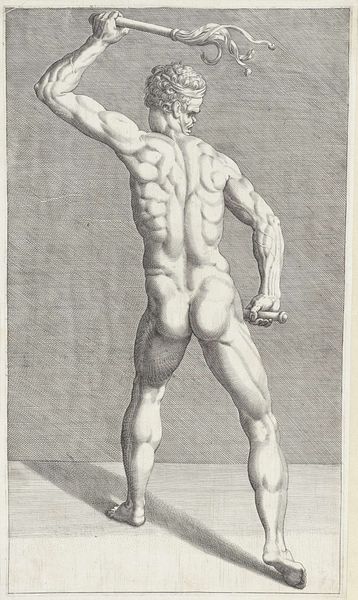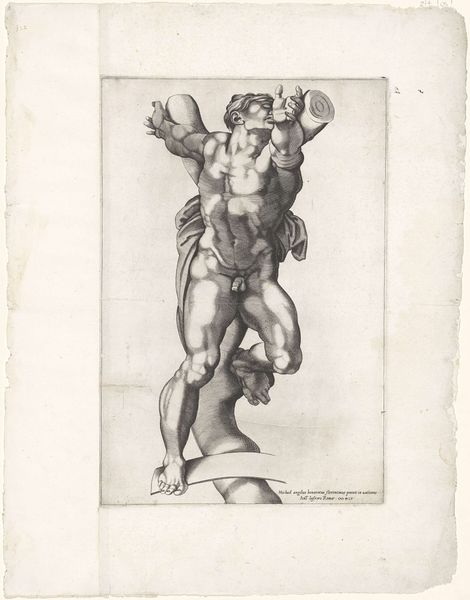
Plate 1: Saturn; statue of the nude god standing on a socle, holding a scythe in his right hand and a child in his left; from 'Statues of Roman Gods' after Jacques Jonghelinck 1586
0:00
0:00
drawing, print, sculpture, engraving
#
drawing
#
allegory
# print
#
mannerism
#
figuration
#
sculpture
#
history-painting
#
northern-renaissance
#
academic-art
#
nude
#
engraving
Dimensions: Sheet (Trimmed): 11 3/16 × 6 5/16 in. (28.4 × 16 cm)
Copyright: Public Domain
Philips Galle created this print of a statue of Saturn in 1586. Galle was working during a time of great religious and political upheaval in Europe. The Protestant Reformation had challenged the authority of the Catholic Church, and there was a renewed interest in classical antiquity, which this image reflects. The statue depicts a nude, muscular Saturn holding a scythe in one hand and a child in the other, a reference to the Roman God Saturn who consumed his children to prevent them from usurping him. This imagery might also be understood in the context of 16th-century anxieties about power and succession. The male body is idealized and powerful, but the act of infanticide speaks to themes of cruelty and desperation. The decision to depict a nude male God is rooted in classical tradition, but may also express certain gendered and power dynamics. The image is both an assertion of power and a commentary on its potential for abuse. It encourages a dialogue between traditional representations and alternative narratives, inviting viewers to consider the complex interplay between power, gender, and morality.
Comments
No comments
Be the first to comment and join the conversation on the ultimate creative platform.
